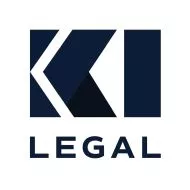In the realm of employment and civil rights, understanding the nuances of anti-discrimination laws is pivotal. In the state of New York, these laws are robust and inclusive, providing protection against discrimination based on sex, gender expression and identity, and sexual orientation. This article aims to shed light on the complexities of these laws, emphasizing the critical differences between federal and state regulations. While we provide a comprehensive overview, it is important to note that the intricacies of New York discrimination law are vast and continuously evolving.
Title VII of the Civil Rights Act of 1964 is a cornerstone federal legislation that prohibits discrimination based on "sex." However, New York State takes a step further in its anti-discrimination efforts. The New York State Human Rights Law (NYSHRL) not only prohibits discrimination on the basis of "sex" but also encompasses "gender expression and identity." Meanwhile, the New York City Human Rights Law (NYCHRL) specifically targets discrimination based on "gender" and extends its umbrella to cover sexual orientation as well. Both NYSHRL and NYCHRL explicitly forbid discrimination rooted in sexual orientation.
Under these statutes, protections against sex or gender discrimination apply to both men and women. The legislative bodies have expressed their intent to combat discrimination related to sexual or gender-related characteristics, irrespective of an individual's assigned sex at birth. However, the interpretation and extent of these protections vary between federal and state laws, leading to ongoing debates in the courts.
A significant milestone in New York's anti-discrimination legislation occurred with the enactment of the Gender Expression Non-Discrimination Act (GENDA) in 2019. GENDA amended the NYSHRL, expressly safeguarding "gender identity and expression" as a protected class. This definition includes a person's perceived gender-related identity, appearance, behavior, or expression, regardless of their assigned sex at birth. While federal courts have differing opinions on the extension of Title VII protections to sexual identity or expression, the Equal Employment Opportunity Commission has recognized discrimination based on transgender status as sex discrimination.
Furthermore, New York State took proactive measures in 2002, amending the NYSHRL to protect individuals from discrimination based on sexual orientation. This amendment aimed to address the prejudice faced by the LGBTQ+ community in workplaces and beyond. The NYSHRL's provisions against sexual orientation discrimination align with those protecting other classes, such as race and color. The NYCHRL mirrors these protections, defining "sexual orientation" broadly to include various forms of romantic, physical, or sexual attractions.
In conclusion, New York's anti-discrimination laws stand as a robust framework, providing extensive protections against discrimination rooted in sex, gender expression and identity, and sexual orientation. This article has offered a broad overview of these laws; however, the field of discrimination law is intricate and constantly evolving. For specific legal advice and detailed information, employers are encouraged to consult with knowledgeable counsel who is well-versed in employment law and compliance matters.
KI Legal is here to help employers navigate New York's complex labor & employment landscape. Our experienced attorneys can provide guidance and support at every stage of the process, from reviewing wage and hour policies to defending against claims of non-compliance. Contact us today to learn more about how we can help you achieve compliance with Part 146 Hospitality Wage Order and other labor and employment regulations. Call (212) 404-8644 or submit a contact form on our website at kilegal.com for a free consultation.
The content of this article is intended to provide a general guide to the subject matter. Specialist advice should be sought about your specific circumstances.
We operate a free-to-view policy, asking only that you register in order to read all of our content. Please login or register to view the rest of this article.



